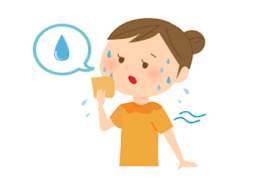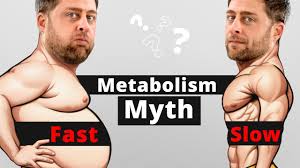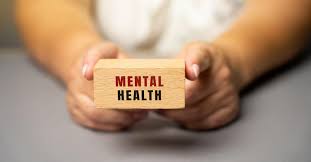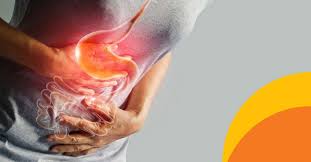I'm trying for a rapid weight loss program as I don't have time.
Will it lead to any side effects?
Also, at present, I'm not in an extreme diet program for my weight loss.
Yes, there are side effects if you follow extreme dieting programs.
What are they?
We are here to explain to you all the side effects of extreme dieting or rapid weight loss goals. First, we need to understand,
Extreme dieting:
In the name of societal norms, extreme dieting, and rapid weight loss programs became highly recommended to have some ideal body shape. Yes, being healthy and fit is essential but not with a rapid goal. To lose weight fast people choose extreme dieting programs by reducing their calorie intake. If you reduce the calorie intake more than the required amounts then it may lead to other health complications.
The recommended intake of food groups in a day to avoid the side effects of extreme dieting:
Food groups |
Recommended intake in grams |
|
Proteins |
1.2-1.6 grams per kilogram of body weight daily |
|
Carbohydrates |
For a 2000-calorie diet, aim for 225-325 grams per day |
|
Fats |
44-77 grams per day for a 2000-calorie diet |
|
Fruits |
300-500 grams daily |
|
Vegetables |
375-625 grams daily |
|
Whole grains |
180-240 grams daily |
|
Dairy |
500-750 grams daily |
|
Water |
2000ml daily |
|
Nuts and seeds |
28-56 grams daily |
|
Legumes |
100-200 grams daily |
Side effects of extreme dieting:
1)Nutritional deficiencies/ malnutrition:
In the process of extreme dieting what you do is you cut down the major food groups from your diet to reduce overall calorie intake that can lead to nutritional deficiencies and malnutrition. For example to lose weight people cut down carbohydrates from their diet which can deprive your body of all the essential vitamins and minerals such as vitamin B, iron, and magnesium. Along with this, low-calorie diets can lead to the deficiency of vitamins A, D, E, and K which are highly essential for healthy body functioning.
2)Dehydration:
 Do not neglect dehydration as a simple issue because severe dehydration can cause imbalances in the electrolytes that can lead to complications such as heart arrhythmia. Diets that reduce carbohydrate intake result in water loss from the body and it can lead to issues such as headaches and fatigue.
Do not neglect dehydration as a simple issue because severe dehydration can cause imbalances in the electrolytes that can lead to complications such as heart arrhythmia. Diets that reduce carbohydrate intake result in water loss from the body and it can lead to issues such as headaches and fatigue.
3)Muscle loss:
When you opt for extreme diet programs, it can lead to muscle loss because your body starts breaking down muscle tissue for energy which might be considered as a side effect of extreme dieting. This is seen mostly in people who have a diet low in protein and do not have any strength training exercises. You might be thinking it's not a big issue but muscle loss reduces the metabolic rate because muscle tissue burns more calories than fat tissue.
4)Slow metabolism:
 While following an extreme dieting process you reduce the calorie intake that reaches the survival mode and it results in a slower metabolism for the consumption of energy.
While following an extreme dieting process you reduce the calorie intake that reaches the survival mode and it results in a slower metabolism for the consumption of energy.
When your metabolism slows down that can lead to weight gain, and it can continue even if you start following a regular diet.
5)Gallstones:
When you follow extreme diet programs, you will not have enough amount of food, and your digestive system will not have food to digest. Then the body will not release the digestive juices, which will harden inside the gallbladder and block gallbladder opening causing pain, discomfort, and gallstones followed by indigestion.
6)Fluctuations in blood sugar levels:
As you do not have the required amounts of nutrients in the body it can improve insulin sensitivity causing fluctuations in the blood sugar levels and increasing the risk of diabetes.
7)Impact on mental health:
 Yes, these extreme diet plans can impact mental health too. The impact is on the mentally whatever the task these people are engaged in back of their minds they will be thinking about food, calories, and weight, and unknowingly that can cause anxiety and depression, resulting in eating disorders such as anorexia and bulimia.
Yes, these extreme diet plans can impact mental health too. The impact is on the mentally whatever the task these people are engaged in back of their minds they will be thinking about food, calories, and weight, and unknowingly that can cause anxiety and depression, resulting in eating disorders such as anorexia and bulimia.
8)Hormonal imbalances:
Hormonal imbalances can also be seen in people following extreme dieting because they may not be consuming enough fats that are highly essential for hormone production. Women may experience irregular menstrual cycles or even amenorrhea (the absence of menstruation). In men, extreme dieting can lead to reduced testosterone levels, affecting muscle mass, energy levels, and overall mood.
9)Digestive issues:
 The extreme diet plans can weaken your digestive system and result in digestive issues. Diets that are high in protein and low in fiber can cause constipation. The low-calorie diets can lead to gastrointestinal problems such as bloating, gastritis, and nausea. Also, if you avoid major food groups then it can lead to food intolerance issues.
The extreme diet plans can weaken your digestive system and result in digestive issues. Diets that are high in protein and low in fiber can cause constipation. The low-calorie diets can lead to gastrointestinal problems such as bloating, gastritis, and nausea. Also, if you avoid major food groups then it can lead to food intolerance issues.
10)Weakened immune system:
A well-balanced diet is highly beneficial for a strong immune system. These extreme diet plans can make you susceptible to infections and health problems. It is particularly during cold and flu season.
End note:
You now understand the side effects or the dangers of extreme dieting. Do take the necessary precautions and follow a sustainable diet plan with a well-balanced diet that will help you to lose weight as well as it will provide you with recommended health benefits. You need to understand that rapid weight loss programs and crash diets can never keep you healthy in the long run as they bring potential health risks near you. Do follow a sustainable weight loss program for a healthier and happier self!
